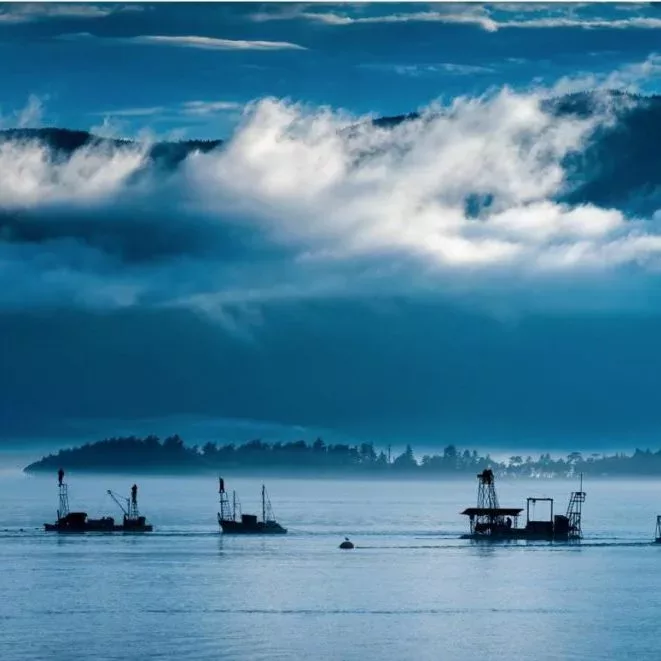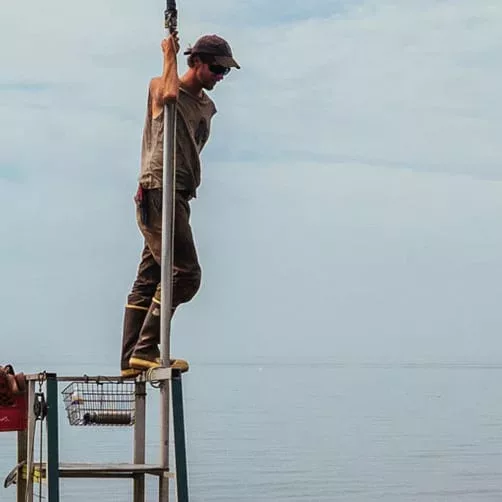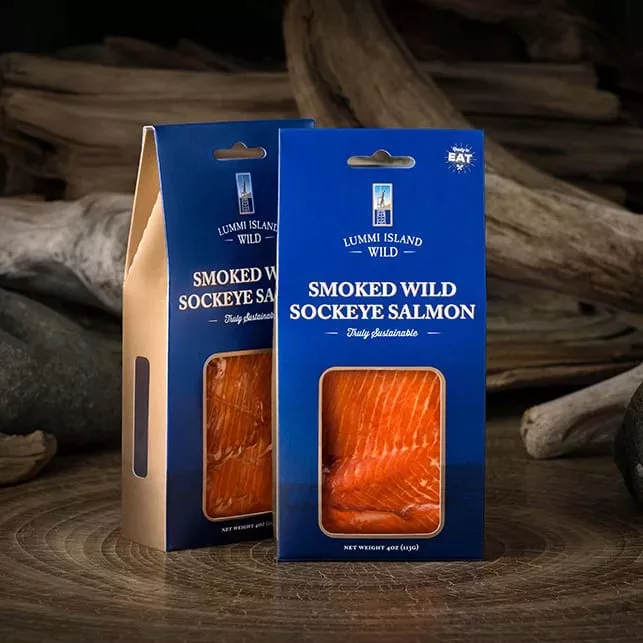
Local Vendor: Lummi Island Wild
The Northwest has long been a place of plenty that provides its inhabitants with a buffet of abundant foraged and farmed foods including berries, mushrooms, nuts, herbs, vegetables, and salmon. The mission statement of Lummi Island Wild reflects its intention to preserve one important element of that bountiful heritage: “To promote the respectful and responsible harvesting of wild salmon and to protect the environment for future generations of fish and people.”
Lummi Island Wild employs the oldest known sustainable fishery method in the world: reefnetting.
Reefnet fishing creates an artificial reef that entices fish to swim over a net suspended between platforms. When the fish arrive, spotters signal the crew to raise the reefnet. Then, the fish are gently rolled into a tank that is open to fresh circulating seawater.
Unlike most fisheries, the gear—the term for the system of platforms, nets, watch towers, and winches—is stationary. Fishers aren’t searching for fish in open waters. Instead, the fish come to them. Additionally, Lummi Island Wild is the first solar-powered wild salmon fishery in the world. The fishery also has an ultra-low bycatch mortality rate of approximately 0.5 percent.

This combination results in the lowest carbon footprint of any salmon fishery in the Salish Sea and earns Lummi Island Wild the accolade of being one of the 10 most sustainable fisheries in
the world.
Once practiced throughout the Salish Sea by many indigenous peoples, reefnet fishing now exists only off Lummi Island, three of the other San Juan Islands, and, as of 2016, off of Cherry Point through a cooperative effort between Lummi Nation and Lummi Island Wild.
For several years, the fishery has partnered with Lummi Nation to source halibut, spot prawns, and some salmon. In 2016, it was asked to assist in designing, building, and deploying a new reefnet gear that resulted in the launch of the first new tribal reefnet gear in 120 years. The Lummi Island Wild website states, “We appreciate the reverence and respect Lummi Nation has for their salmon, and hope to continue to expand our cooperation with them.”
You can easily see why the Co-op meat department staff is proud to offer this local, sustainable product. But how does it taste?

As far as salmon are concerned, fat is where it’s at, and the salmon heading to spawn in the Fraser River are among the fattest in the world. Salmon store fat during the ocean-dwelling part of their lifecycle. The longer and more arduous the journey back to their spawning ground, the more fat reserves they store.
The journey for some Fraser River salmon can be as long as 1,000 miles through extremely turbulent waters. For comparison, the now-famous Copper River in Alaska is only 350 miles long.
Lummi Island Wild harvests Fraser River salmon long before they enter the river, so they still have all their stored energy in the form of healthy omega 3-rich fat that results in a texture, flavor, and health benefit that few other salmon can offer.
Find information about the different salmon species, preparation tips, and videos depicting everything from the reefnet process to packaging on the Lummi Island Wild website. Particularly interesting to me is the Patagonia video, linked on the homepage, that features discussion about the importance of pink salmon to the future of Salish Sea salmon fisheries. Have we all been underestimating a local delicacy?
Learn more at lummiislandwild.com.